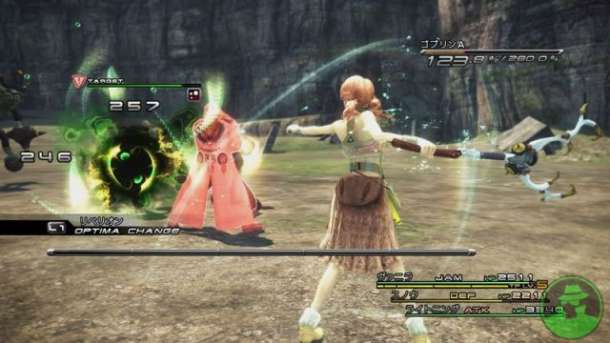
As such, brief cut-scenes cue every half-dozen battles, after which a new mechanic manifests and you're unleashed to scrutinize its permutations. This allows the design team to dole out new features apace, grafting one piece of machinery onto another like a fascinating clockwork mechanism assembling before your eyes. It's restriction with purpose, in other words, iterating such that battles become testing grounds for new abilities, with no two encounters playing alike. That you can restart battles on the fly, obtain better or worse items contingent on a post-fight performance rating, and rise, phoenix-like, from the wreckage (you automatically heal after each encounter) reinforces the sense of racing through a training gauntlet.
As characters accrue experience, their battle gauges expand, ratcheting up combat complexity. Switching between characters -- the game does this for you at first -- requires that you learn and eventually master each one's shifting tactical fortes. When "paradigms" finally unlock, you'll craft offensive and defensive templates triggered with a shoulder button in the heat of battle (a clever riff on Final Fantasy XII's "gambit" system that trades pre-battle tactical micromanagement for more gratifying in-battle strategic control). Even Libra, the perennial series ability that reveals enemy weaknesses, reinvents itself as a means of anteing-up battle know-how: Trigger it repeatedly to suss an enemy's attributes, and your party members adapt dynamically, scrambling for offensive ins or defensive holes to plug.

When you finally emerge from Final Fantasy XIII's straightaways, it's into a world replete with optional quests and side-stories and all the free-form flex you've being jonesing for -- from an epic battle-trainer to a kind of massively-single-player Olympics. Multiply by half again as much to do, and divide by nothing.





